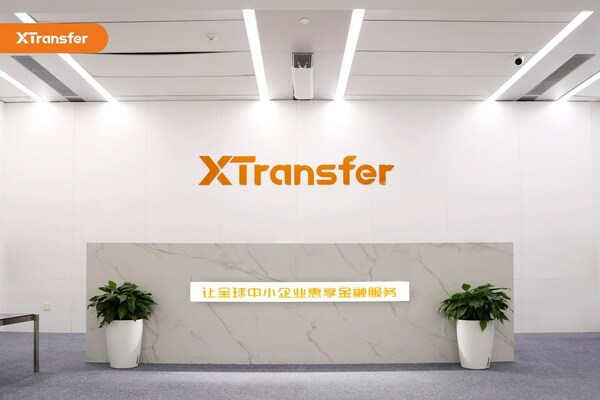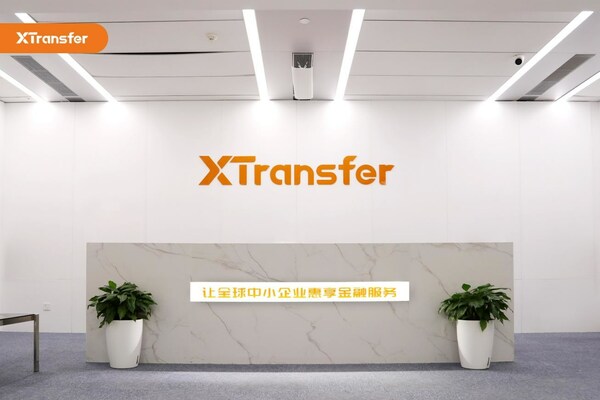- All Plans
- Yahoo Press Release
- Bloomberg Press Release + Yahoo Finance
- Business Insider Press Release
- Benzinga Press Release
- Digital Journal Press Release
- US Times Now Press Release
- AP News Press Release
- Yahoo Finance Press Release
- Street Insider Press Release
- MSN News Press Release
- USA Today Press Release
XTransfer: Transforming International Trade Through Innovative Cross-Border Payments

Cross-border payments refer to transactions between the purchaser and the seller in different countries. Cross-border payments are characterized by higher frequency and importance caused by the development of international relations and IT technologies.
China, 11th Jul 2024 – Cross-border payments refer to transactions between the purchaser and the seller in different countries. Cross-border payments are characterized by higher frequency and importance caused by the development of international relations and IT technologies. These enable transfers between individuals, companies, and even governments of different countries.

The e-commerce market in the globe is constantly evolving, and businesses need cross-border payment solutions that are both reliable and efficient. These solutions provide businesses with an opportunity to connect with customers worldwide, expanding their reach beyond domestic markets. By offering diverse payment opti jnions, cross-border payments can contribute to enhancing customer convenience and satisfaction, thus fostering loyalty and driving sales growth.
Cross-Border Payments’ Functions in E-commerce
Cross-border payments are used frequently for inter-country transactions in e-commerce channels. These online marketplaces provide a medium for the diverse global interaction between the buyer and the seller.
- Enable global trade: These transactions are essential to business companies, whether big or small, to pay suppliers, get paid by customers, and manage international investments. This is the very kind of globalization of the financial systems that fuel today’s complex globalized marketplace.
- Personal remittances: Individuals working overseas send money back to their home countries, taking care of their families and investing in their home countries. According to the latest data from the World Bank, global remittances to low- and middle-income countries hit a staggering $540 billion in 2020, proving the relevance of this service to the world economy.
- Foreign investments: These transactions allow capital to flow across borders, which, in turn, promotes the expansion of the global economy. These can range anywhere from people buying stocks into a foreign company or international firms establishing branches in other countries.
- Workforce payments: It admits that, with the rise of remote work, companies are seeking highly talented people regardless of location. Employees are to be paid these wages, often in local currency, and this process requires cross-border payments to be made.
Evaluating Cross-Border Payment Solutions
When choosing a cross-border payment solution, e-commerce platforms should consider several factors:
- Cost: Fees and charges linked to cross-border payment may reach a certain level reflected in the amount of money, which is an aspect of total costs. Payment choices such as XTransfer should be designed to be less costly; therefore, platforms can evaluate various options to choose the best one.
- Speed: The speed of transactions is a critical factor in e-commerce. Payment options should enable the processing of payment methods in a short interval.
- Security: In the cross-border payments sector, security should be the main priority, as seen in using SWIFT and similar systems. For the payment solution it has chosen, platforms should ensure that robust security measures to counter these vices are well implemented.
- Usability: The payment solution should be easy to use for both the platform and its customers. When integrated with the platform and existing systems, user-friendly interfaces can improve patrons’ experience.
Challenges in Cross-Border Payments
While they are integral to allowing for growth in global e-commerce, cross-border payments are not without their special challenges. Here are some of the most typical challenges that e-commerce platforms encounter:
- Currency Exchange Rates: Variations in currency rates can influence the expenses of buying from and selling to other nations, making it difficult for companies to budget and control. Moreover, customers may be alerted from making purchases due to unexpected currency conversion costs.
- Transaction Fees: It tends to charge higher fees than the transaction within the border of a nation. These fees can significantly reduce businesses’ profit margins, especially the market’s emerging ones.
- Regulatory Compliance: Laws and regulations governing cross-border transactions are specific to each nation. For e-commerce platforms, survival and fulfilling the requirements of various legal environments can be quite a challenging and time-consuming process.
- Payment Security: Another concern worthy of more attention in cross-border transactions is the risk of fraud and cybercrime. E-commerce platforms must make sure they have warranted security to contain these risks.
- Payment Processing Time: Cross-border payments can take longer to process than domestic transactions because several financial institutions are involved. The management of cash flow may be impacted by this delay, as well as the handling of customer complaints.
- Cultural and Language Differences: Language barriers are potent factors that influence issues related to payment processing and customer relations or support. Consumers also have preferred payment methods that vary with the country in which they reside.
Therefore, e-commerce platforms must collaborate with trustworthy payment solution providers such as XTransfer that are capable of providing sound security systems at the same time. Despite these hurdles, many firms deem it worthwhile to overcome them because of the undoubted business evolution that comes with the international platform.
Key Takeaways
As the global e-commerce business develops, it is certain that cross-border payments will play an increasingly significant role. Through collaboration with reputable payment solution providers, e-commerce platforms can guarantee secure, efficient, and economical cross-border transactions. With the right approach and tactics, e-commerce platforms have the ability to leverage cross-border payments as a strategic advantage, driving growth and prosperity within the worldwide e-commerce domain.
Media Contact
Organization: XTransfer
Contact Person: John Doe
Website: https://www.xtransfer.com/
Email: Send Email
Country: China
Release Id: 11072414121
